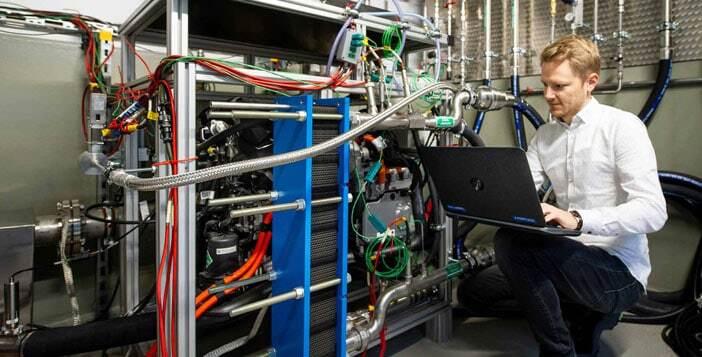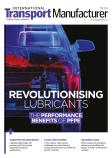
Aerospace engine manufacturer Rolls-Royce has secured £3 million from the UK Government to build a demonstrator Direct Air Capture (DAC) system that could play a vital role in decarbonising the aviation industry.
Due to be operational in 2023, the demonstrator will reportedly be capable of removing more than 100 tonnes of CO2 per year from the atmosphere. CO2 removed by the system will also be recycled to make fuel for the aviation sector in a bid to speed up the phase-out of fossil fuels.
Although initially a demonstrator, a full-scale version of the DAC system could remove up to one million tonnes of CO2 per year and contribute to the UK's target to remove 25 million tonnes of CO2 per year by the end of the decade.
"Every credible climate change model requires us to decarbonise today's emissions, as well as removing CO2 already in the atmosphere via carbon negative technologies such as DAC," said Jess Poole, DAC Lead for Rolls-Royce.
"Our system combines our expertise in moving large quantities of air efficiently and integrating complex systems, which have been gained from designing world-leading jet engines, with novel DAC technology developed by CSIRO."
Rolls-Royce's pursuit of net-zero
In recent years, Rolls-Royce has laid out its intention to make its operations and facilities net zero by 2030 by improving the efficiency of its products to burn less fuel and make them compatible with sustainable alternatives.
Since 2021, the company has launched two new ventures, one for electrical power for flight, and the other focused on small modular nuclear power stations. The firm has also brought together key players in the oil and gas sector to help ramp up the supply of sustainable aviation fuel (SAF), and approved its Series 4000 and Series 1600 diesel engines for use with a range of more eco-conscious EN15940-certified synthetic diesel fuels.
Meanwhile, June saw the company enter the hydrogen production market with a majority stake in electrolysis stack specialist Hoeller Electrolyzer.
The DAC demonstrator
Rolls-Royce initially received £250,000 funding to develop the demonstrator in partnership with the Commonwealth Scientific and Industrial Research Organisation (CSIRO) from the UK Government's Net Zero Innovation Portfolio (NZIP) last year. The latest £3 million injection will bring the project to fruition in Derby, helping to build on the Government's 10 Point Plan for a Green Industrial Revolution.
The demonstrator will be built and operated in-house by Rolls-Royce's engineers in its Test Bed 52 aerospace test facility. The facility has been previously used to test jet engines and is specifically designed to measure how well new technologies perform.
"Together the system works like a giant lung, sucking in air, absorbing the CO2, and releasing what is not wanted," explained Poole. "We use a water-based liquid to wash around 50% of the CO2 from the captured air."
According to Poole, the technology's point of difference is that very little water is used during the process, and the liquid that is used is recycled at low temperatures, making the system energy efficient.
"Other technologies consume a lot of water and require substantial amounts of energy to generate heat for the separation of the CO2," she added. "This funding is great news for the team, and we're excited about the future potential of this technology to help fight climate change."
Subscribe to the Engineer Live newsletter for the latest news and updates from the industry and make sure to sign up for your free subscription to our portfolio of magazines.

















